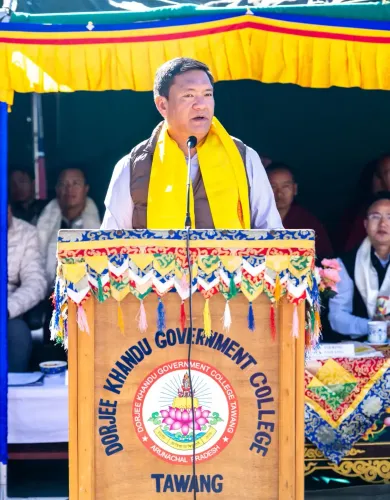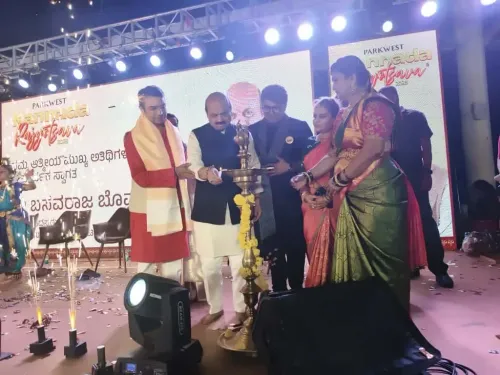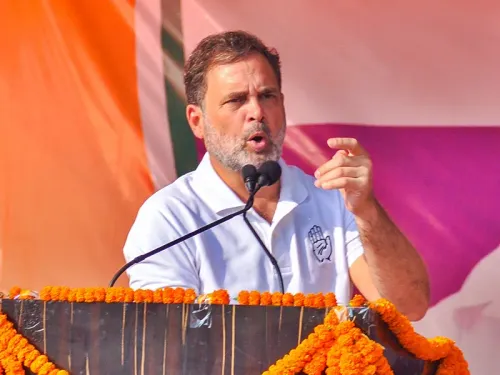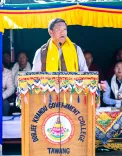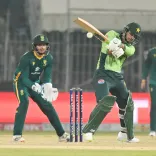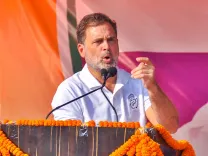Will Justice Prevail for the 2006 Mumbai Blast Victims?
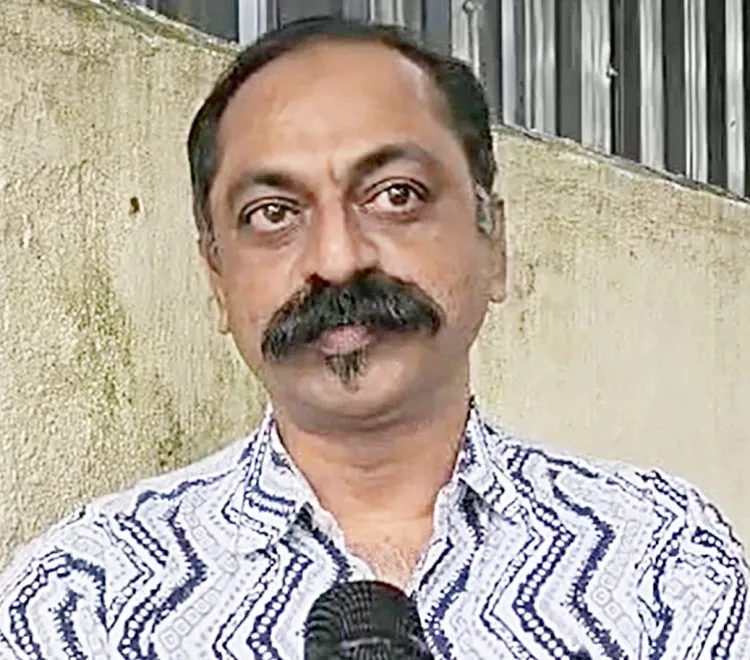
Synopsis
Key Takeaways
- Supreme Court's intervention provides hope for justice.
- Victims express frustration over lengthy judicial delays.
- Calls for judicial reform to ensure timely justice.
- 2006 attacks claimed over 180 lives, highlighting the need for accountability.
- Acquittal of accused raises concerns about the judicial system.
Mumbai, July 24 (NationPress) Survivors of the 2006 Mumbai train bomb blasts expressed relief on Thursday following the Supreme Court's decision to pause the recent Bombay High Court ruling that acquitted all 12 accused in this notorious case.
Many of the victims voiced their frustration regarding the protracted judicial process, calling on the central government to overhaul the legal system to ensure that justice is delivered swiftly, transparently, and effectively.
The Supreme Court's intervention is a beacon of hope for survivors who have been seeking closure for nearly two decades.
Radhe Shyam Dubey, a victim of the blasts, regarded the Supreme Court’s ruling as a positive development.
"The Maharashtra government's decision to escalate this case to the Supreme Court is commendable. I extend my gratitude to the Supreme Court for halting the High Court's ruling that cleared all 12 accused in the Mumbai train blasts case," he stated.
Dubey criticized the extensive delays in the judicial process, noting that the High Court took 19 years to address a case where the trial court had already deemed the accused guilty.
“Why was there such a lengthy delay? The High Court should have acted far sooner. And on what grounds did they issue an acquittal after all these years?” he questioned.
He expressed deep concern over the state of India’s legal framework.
“I perceive collusion in this. The handling of this case is a travesty of the judiciary. It jeopardizes the entire law and order system in our country. The central government must take immediate action to reform the judiciary. Timely verdicts are crucial to deter criminals from engaging in such acts,” he added.
Emphasizing the tragic fate of innocent lives, he stated, “What crime did those individuals who perished in the train blasts commit? Did they deserve to die simply for taking a train? Criminals are being set free while the innocent suffer—what kind of justice is this? India is facing disgrace on an international level because of such flawed systems.”
Dubey implored the government to take responsibility and implement reforms without delay.
“If reforms are not enacted soon, we will continue to squander precious time, and innocent lives will keep being lost. A transformation in the system is urgently needed.”
Regarding the Supreme Court’s role, he mentioned: “I have immense faith in the Supreme Court. Every citizen in India respects its authority. I only hope its decisions are transparent and anchored in truth. If someone is innocent, they should be acquitted; however, if someone is guilty, they must face the most severe punishment. Only then can India build a robust and credible legal system. Change is a natural law, and our judiciary desperately needs it now.”
Mahendra Pitale, another victim who lost his hand in the incident, described the High Court’s acquittal as more painful than the blast itself.
"I lost one of my hands during the explosion on July 11, 2006. However, the High Court’s decision to acquit all 12 accused left me more shaken than the actual event. I kept asking myself—why are the real culprits still at large?” he lamented.
Pitale underlined the significance of accountability, expressing concern that the accused might now be living freely among the public. “Those who executed the blast could be walking around in Mumbai or elsewhere today. Nineteen years later, if these men are freed, who will genuinely pursue the real culprits?”
He found solace in the Supreme Court’s stay order.
“For me, the Supreme Court’s intervention offered some mental relief. I believe a thorough investigation may now resume, leading to the actual culprits. Even if some of the accused are innocent, those who are guilty must be punished without delay.”
Recalling the horror of that day, he said: “When the blast occurred on July 11, 2006, I had taken my usual train after work. As soon as I boarded, there was a loud explosion. I was unaware of what had transpired. A man helped me reach the hospital, and only then did I comprehend that the blast had devastated my entire hand. Around me, it was absolute chaos. Bodies were everywhere. People had lost their hands and legs. There was blood on everyone's clothes. The scene was indescribable.”
Pitale concluded with a heartfelt appeal to the nation’s leaders: “I urge the President and the Prime Minister of India to take measures that ensure such incidents never occur again. Those involved in these heinous acts must face swift and severe punishment. Only then can we dissuade others from thinking they can commit such acts and walk away unpunished.”
On July 11, 2006, a series of coordinated bomb blasts tore through Mumbai’s suburban railway network during the evening rush hour. The attacks claimed over 180 lives and injured hundreds more, marking it as one of the deadliest terror attacks in India.
The case has experienced numerous twists and delays over the years. In 2015, a special court under the Maharashtra Control of Organised Crime Act (MCOCA) convicted 12 individuals in connection with the blasts. However, in 2024, the Bombay High Court overturned those convictions, citing insufficient evidence and procedural missteps. This decision faced widespread criticism from victims, survivors, and civil society groups.

